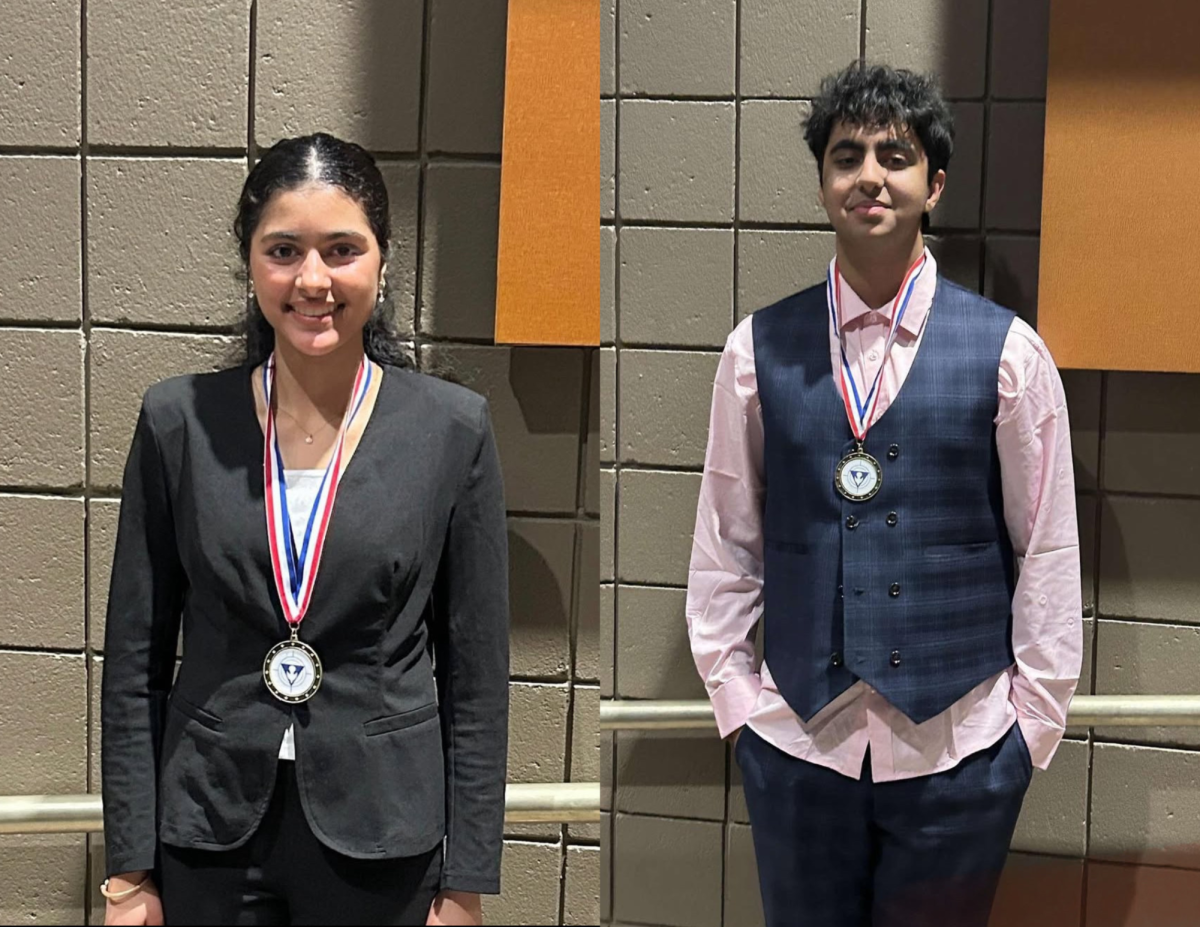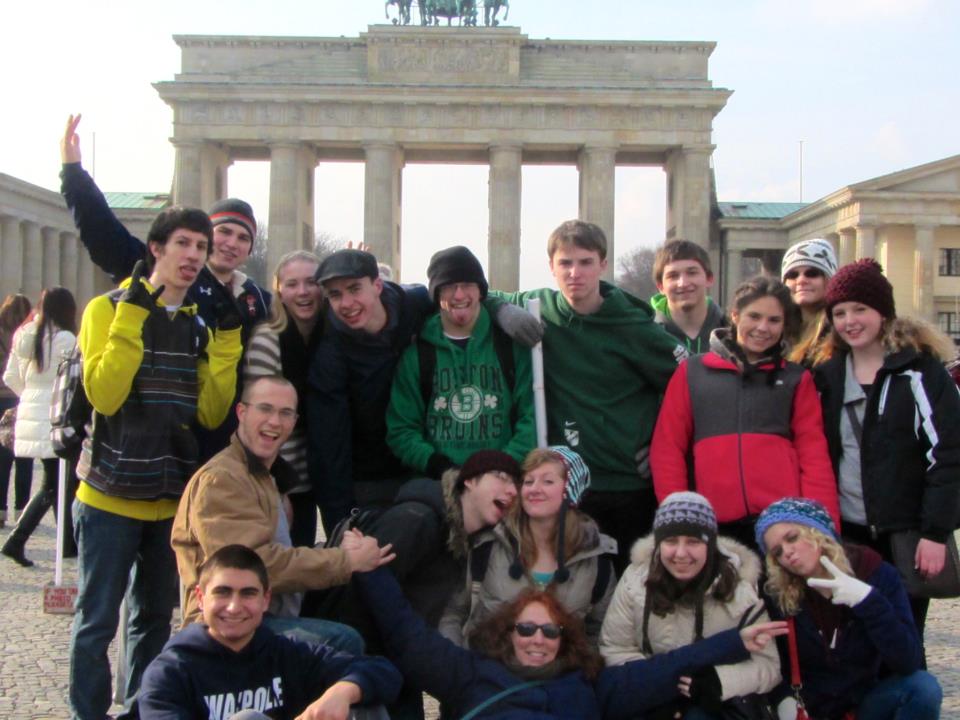
Certain images come to mind when thinking of Europe. You may think of Spain or Italy, with settings taken right out of a romance novel; Ireland or England, filled with endlessly-flowing green countryside; a Paris evening illuminated by a million lights- each a tourist’s paradise locale. But what about Germany?
In the modern conception, there are quite a few things that are traditionally associated with this country. Beer, sausage, schnitzel, and lederhosen are usually the first things to come to mind. Then there are the brilliant minds of Bach, Beethoven, Mozart (though Mozart was actually Austrian), and Nietzsche. However, having made my second two-week trip to the country this past February, I have come to the conclusion that trying to quantify the value of this country, or really any country, just based on its history or the attractiveness of its tourist-sites, is a mistake. It is the people of Germany, not any monuments to a bygone past or its strange affinity for pork products, that really puts the nation into a class of its own, and this reason and this reason alone is why I hope my most recent visit will not be my last.
This is not the first time the German exchange program offered by the high school has made the trip, the first being made in 2007. Every two years, Mrs. Elizabeth Pierce, Walpole High School’s German language teacher, brings over a group of students from her German classes in February, after the students host their exchange partners in October. The previous trip in 2011, which senior Laura Drinan and I were both on, was an amazing experience. This trip was no different.
Our plane departed on Sunday, February 11, delayed a day due to the snow storm two days before. The flight took approximately eight hours, and was fairly uneventful. I sat next to a man from Massachusetts visiting his wife who was a professor at Harvard. The small-talk progressed logically from that point, as we spoke about colleges I had gotten accepted to and planned on visiting, where my parents attended, and where he himself had gone (Amherst College).
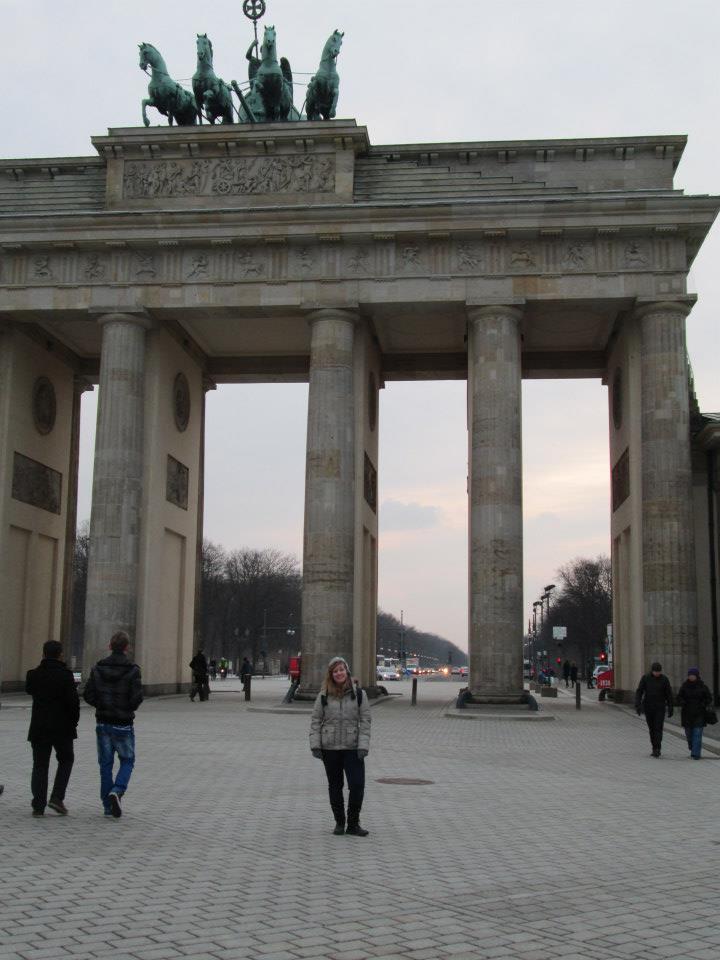
We landed in Frankfurt under cover of darkness, which confused many of us, because as we left the terminal dawn was already lifting, giving way to the early morning sun. The realization that it was morning, not evening, was certainly demoralizing. Needless to say, our first day in Berlin was going to be a challenge, especially for those (like myself) who were going on only a few hours of sleep and being faced with 28 hours of urban exploration. We made a connecting flight to the capital, and so our trip began.
We experienced the sights of the city (and constant, loud sounds; our youth hostel was situated in the center of most of Berlin’s traffic), seeing Checkpoint Charlie, where the only passage between the Soviet and Allied sectors was located (if you were unaware, Germany, since 1945 until 1989, was divided into two sectors: in the east was the Soviet sector; in the west was the “Allied” sector- occupied by French, British, and American forces). The Berlin Wall stood as a solemn reminder of a past time, both sides of it covered in graffiti of the political sort, dotted with inlets of broken concrete. It was as if the oppressive wall were some decaying beast, slowly being picked apart by the carrion-bird of liberalized freedoms and loose restrictions.
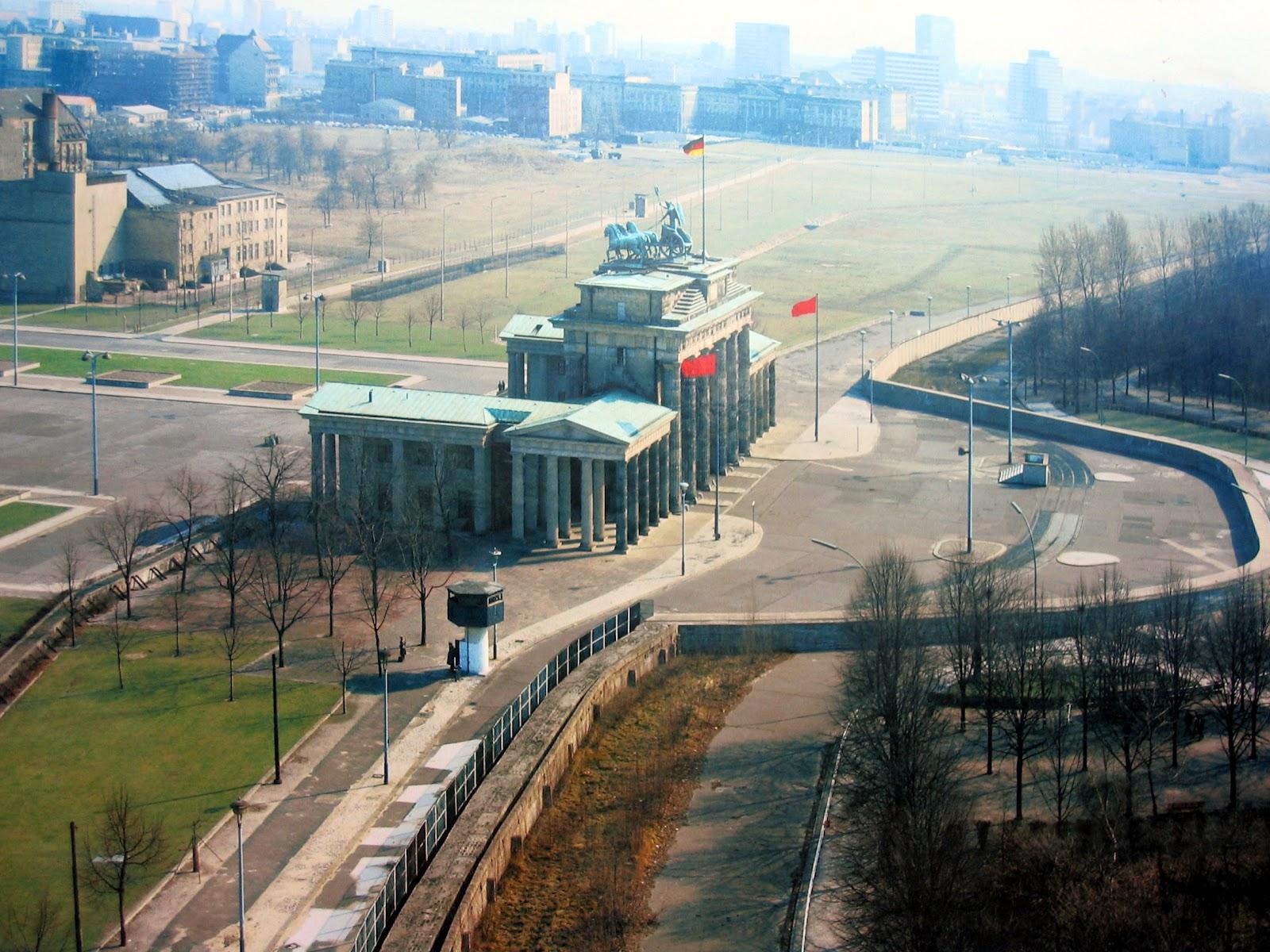
The next landmark, located in the former Soviet “death-zone” between the Wall and exterior barriers (given the name because of the Soviet guards’ policy of shooting-on-sight all those escaping to the West), was the Brandenburg Gate. This huge marble structure stood as the most grandiose display of power and architectural prowess in the city, followed only by the Reichstag and the Berlin Victory Column, which were all within a few miles of the Gate.
And finally, after three days, we made our way to our host families in Ingelheim.
I was attending the same school I had attended two years prior, Sebastian Munster Gymnasium, and saw many of the German students involved in that exchange, including my previous exchange partner Sophie. The school, as indicated by the sample German student population on our exchange, was filled with well-dressed students and staff, and I do not think I saw a single person without a scarf. There’s still some debate amongst the Americans as to whether or not checkered scarves and gelled hair is a requirement for all Europeans.
Nightlife in the town consisted of going to restaurants, and our trip was dotted with visits to cities in proximity to Ingelheim (Cologne, Mainz, ect.) We saw a Mainz soccer game, which, to Americans not familiar with the passion Europeans have for soccer, is one of the most exciting things a person can go to, even if you’re just observing the fans.
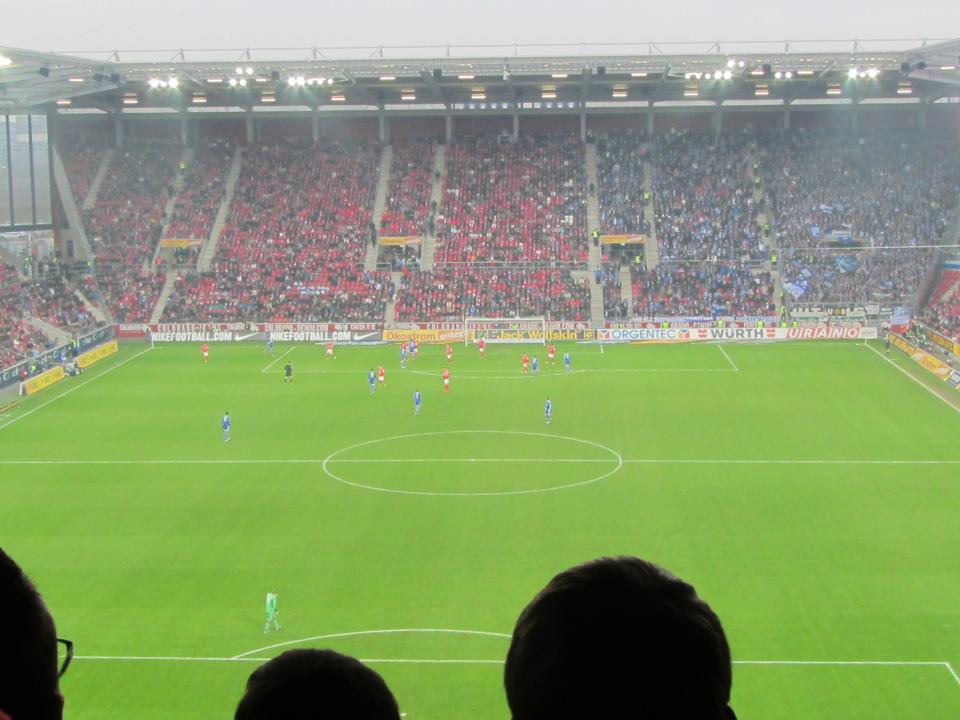
Apart from the soccer game we traveled to (attended by fans with a fervent zealotry of the religious kind), the school we attended (where Macbeth was the subject of our English class), and the baked goods and Currywurst we grabbed from the Metzbeck (a butchery and bakery in one shop- they have those), the joy I drew from the trip really came from my host-family.
My host father, Elmar, was a journalist, a co-editor-in-chief of the ZDF, one of the biggest news sources in Germany. He was a terrorism specialist, and actually gave me a free copy of his book Nine Eleven: Der Tag, der die Welt veraenderte -“The day the world changed”. Despite his likely demanding and serious profession, he was calm and of a rational, sober nature, and he certainly wasn’t stern or incapable of finding humor in the everyday. This last trait was also shared by his wife, Andrea, who found humor in everything and whose infectious laugh would fill a room, forcing anyone in the vicinity to find something humorous, even if it was not (or even if that person did not speak German, like myself). The house glowed of a general sense of camaraderie and ease, made even easier by the laid-back personalities of the three children. It was, to say simply, a great place to live. Even when I came down with mononucleosis in the closing days, the entire family jumped into action, giving me any care they could. I was even taken to a doctor.
So, having lived with the Thevessens and experienced the good nature of not only them but practically every person I encountered during my stay, the real joy I took home from the trip was a sense of friendship, a bond created between two foreign, albeit similar cultures. The country certainly has not experienced the last of me, and my graduating from high school will not stop the occasional educational experience of Germany to occur again. I am already planning to study in Germany after my first or second year of college, so the fun is not over yet: hopefully.





